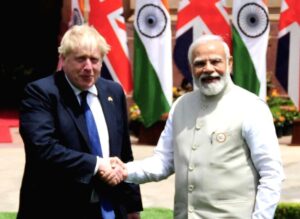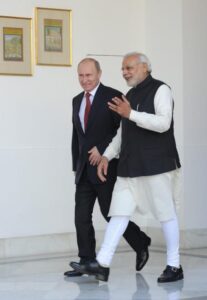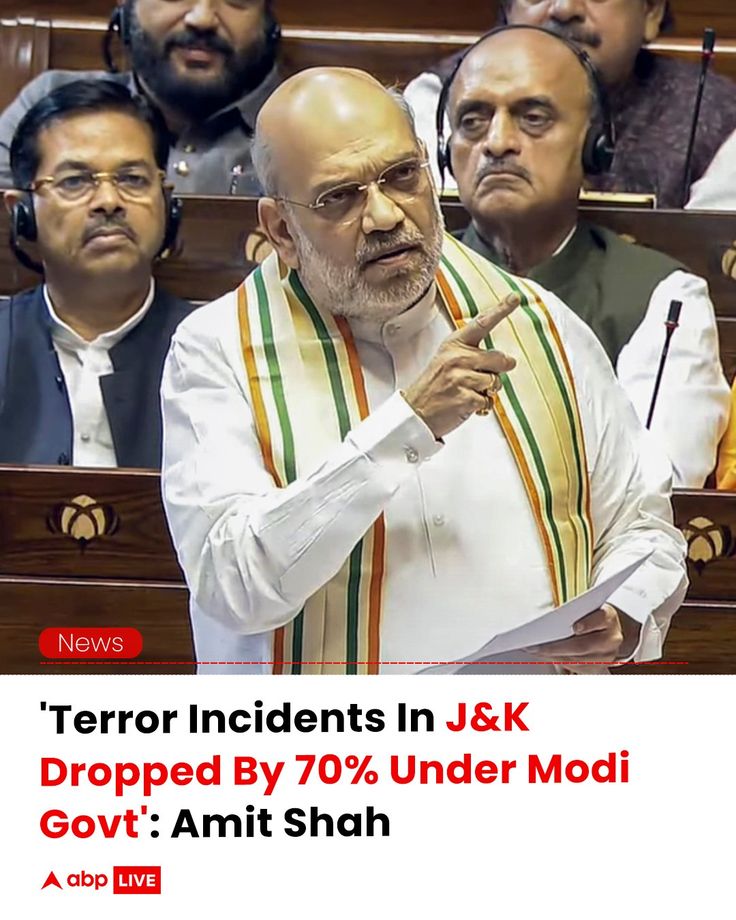The recent terrorist incident at Pahalgam resulted in several civilian and security personnel deaths so Prime Minister Modi authorised his military forces to pursue their missions without restrictions. National security remains the highest priority according to the government who maintains full support for forces to pursue any necessary measures to protect the nation while handing out severe punishments to offenders.

The Pahalgam terrorists struck a critical blow in a protected but still dangerous part of the Kashmir valley thereby proving once more that terrorism continues across this region. Security personnel together with civilian passengers became targets when armed militants attacked their transport which resulted in gunfire exchange and numerous casualties.
The situation required government officials at the highest level to receive updated briefs about what was happening. Highly placed sources disclose that the Prime Minister Modi gave unchecked authority to local police units and both paramilitary forces and the Indian Army to eliminate threats and establish order across the area.
A Strategic Shift in Response Policy
Prime Minister Modi make decision to give complete freedom to military forces represents India’s newest strategy in countering terrorism. Military operations in sensitive regions of Kashmir normally undergo multi-stage political clearance along with executive oversight in order to prevent international repercussions or unintended harm to civilians. The central government shows determination to authorize a rapid decisive method following the recent surge of terror attacks within Jammu and Kashmir.
The security establishment reveals permission in this new directive to conduct intelligence-driven operations along with premeditated strikes and anticipatory surveillance in high-risk regions particularly south Kashmir. The directive grants permission to military forces to hunt terror networks operating inside Indian localities or sneaking across the LoC.
Political Unity in the Wake of the Tragedy
Premier leadership brought together top officials including the NSA, Home Minister, Defence Minister and heads of the Indian Army and CRPF and Intelligence Bureau following the Pahalgam incident. Information indicated that the meeting atmosphere carried both firm determination and camaraderie between participants.
Across political parties the widespread agreement Prime Minister Modi existed that any terrorist conduct deserves firm response as an unwarranted act. Multiple political leaders along with different military veterans endorsed the government’s approval of independent military conduct in response to the attack. The region requires complete national unity because thousands of pilgrims will participate in the Amarnath Yatra and potential targets will emerge.
Security Forces on High Alert
The Prime Minister Modi issued orders which led to heightened security preparedness at all Jammu and Kashmir security facilities. Military forces have increased the number of sweeps in Pahalgam together with nearby districts to locate the attackers. Troops increase their surveillance activities through nighttime operations along with drone monitoring and human intelligence networks to monitor militant movements.
The security forces reinforced checkpoint operations while sending additional forces to secure potentially exposed areas. The Central Reserve Police Force (CRPF) receives instructions from authorities to work closely with Indian Army units for unified operational activities within the Kashmir valley.
The high morale of troops continues alongside government support which provides commanders with complete operational authority to execute decisive actions. Defense forces will extend no mercy toward any enemy forces that launch attacks against them. According to him the troops finally received complete freedom to respond decisively.
Intelligence Inputs and Infiltration Concerns
Security officials have identified possible connections between the Pahalgam attackers and support from foreign locations through initial intelligence reports. Foreign weapons found at the site caused serious concerns regarding continued border infiltration activities and attempts. Several attempted terrorist infiltrations into the Indian territory and border incidents have emerged during the recent months.
Security agencies aim to establish whether the Pahalgam attack came from an established terror group located in Pakistan-occupied Kashmir (PoK). External evidence from the attack site confirms the possibility that Indian forces may respond with surgical operations against Pakistani positions after the Uri and Pulwama attacks model.
Civilian Safety and Local Coordination
The government of Prime Minister Modi along with security teams aims for strong retaliation but does its best to protect civilians from accidental harm. The local coordination systems are receiving support to enable security forces to capture terrorists without causing damage to innocent civilians.

Community leaders together with village panchayats from the region have been contacted by military forces. Many members of the local population have provided valuable information to law enforcement which demonstrates that the residents strongly reject these terrorist acts. Civilians need to work with military forces to achieve effective outcomes in current counterterror actions.
International Implications and Diplomatic Angle
International diplomats have paid special notice to this terrorist attack in Pahalgam. The Pahalgam attack received criticism from multiple countries like the United States and Russia as well as the UK and France which provided support to India regarding their anti-terrorism operations. Indian calls for cross-border terrorist attention at international meetings gained real proof after the recent attack.
The Indian Prime Minister Modi demonstrates its dedication to peace but reinforces its readiness for decisive action by allowing forces to decide their own methods of response.
Looking Ahead: Long-Term Security Framework
The newest Indian security doctrine may signal upcoming permanent changes in Jammu and Kashmir’s internal security policies. The security experts view military independence as serving two related purposes: the creation of an anti-infiltration shield which will stop future insurgencies while breaking up militant organizations completely.
The Indian government might boost counterterrorism funding by enhancing surveillance equipment acquisition and strengthening intelligence relationships between security agencies.
Conclusion
In response to the Pahalgam attack the Indian Prime Minister Modi handed complete military operational autonomy to its armed forces as a sign of total anti-terrorism measures. This security measure demonstrates a new aggressive stance designed to safeguard national interests along with working toward bringing peace to an unstable section of the country. The next several days will mark a rise in military actions which could establish new parameters for terrorism in Kashmir following successful force operations.
The nation continues to support the security forces as they carry on their mission alongside the oppressive loss in Pahalgam. The people alongside Prime Minister Modi leadership provide full support which enables military forces to deliver their strong uncompromising response.

